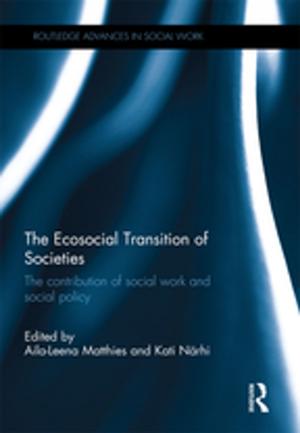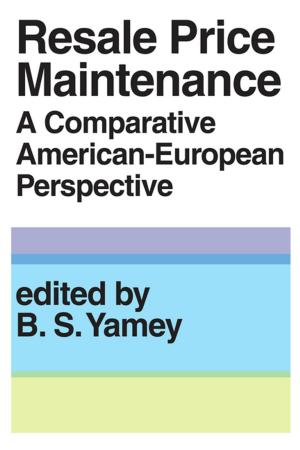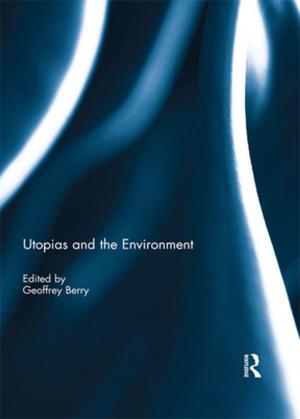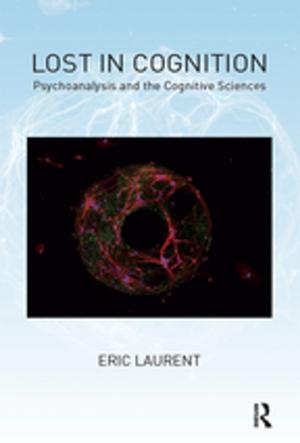Jung, Irigaray, Individuation
Philosophy, Analytical Psychology, and the Question of the Feminine
Nonfiction, Health & Well Being, Psychology, Mental Health| Author: | Frances Gray | ISBN: | 9781135448363 |
| Publisher: | Taylor and Francis | Publication: | November 23, 2007 |
| Imprint: | Routledge | Language: | English |
| Author: | Frances Gray |
| ISBN: | 9781135448363 |
| Publisher: | Taylor and Francis |
| Publication: | November 23, 2007 |
| Imprint: | Routledge |
| Language: | English |
How do philosophy and analytical psychology contribute to the mal-figuring of the feminine and women? Does Luce Irigaray's work represent the possibility of individuation for women, an escape from masculine projection and an affirming re-figuring of women? And what would individuation for women entail?
This work postulates a novel and unique relationship between Carl Jung and Luce Irigaray. Its central argument, that an ontologically different feminine identity situated in women's embodiment, women's genealogy and a women's divine is possible, develops and re-figures Jung's notion of individuation in terms of an Irigarayan woman-centred politics. Individuation is re-thought as a politically charged issue centred around sex-gendered difference focussed on a critique of Jung's conception of the feminine.
The book outlines Plato's conception of the feminine as disorder and argues that this conception is found in Jung's notion of the anima feminine. It then argues that Luce Irigaray's work challenges the notion of the feminine as disorder. Her mimetic adoption of this figuring of the feminine is a direct assault on what can be understood as a culturally dominant Western understanding. Luce Irigaray argues for a feminine divine which will model an ideal feminine just as the masculine divine models a masculine ideal. In making her claims, Luce Irigaray, the book argues, is expanding and elaborating Jung's idea of individuation.
Jung, Irigaray, Individuation brings together philosophy, analytical psychology and psychoanalysis in suggesting that Luce Irigaray's conception of the feminine is a critical re-visioning of the open-ended possibilities for human being expressed in Jung's idea of individuation. This fresh insight will intrigue academics and analysts alike in its exploration of the different traditions from which Carl Jung and Luce Irigaray speak.
How do philosophy and analytical psychology contribute to the mal-figuring of the feminine and women? Does Luce Irigaray's work represent the possibility of individuation for women, an escape from masculine projection and an affirming re-figuring of women? And what would individuation for women entail?
This work postulates a novel and unique relationship between Carl Jung and Luce Irigaray. Its central argument, that an ontologically different feminine identity situated in women's embodiment, women's genealogy and a women's divine is possible, develops and re-figures Jung's notion of individuation in terms of an Irigarayan woman-centred politics. Individuation is re-thought as a politically charged issue centred around sex-gendered difference focussed on a critique of Jung's conception of the feminine.
The book outlines Plato's conception of the feminine as disorder and argues that this conception is found in Jung's notion of the anima feminine. It then argues that Luce Irigaray's work challenges the notion of the feminine as disorder. Her mimetic adoption of this figuring of the feminine is a direct assault on what can be understood as a culturally dominant Western understanding. Luce Irigaray argues for a feminine divine which will model an ideal feminine just as the masculine divine models a masculine ideal. In making her claims, Luce Irigaray, the book argues, is expanding and elaborating Jung's idea of individuation.
Jung, Irigaray, Individuation brings together philosophy, analytical psychology and psychoanalysis in suggesting that Luce Irigaray's conception of the feminine is a critical re-visioning of the open-ended possibilities for human being expressed in Jung's idea of individuation. This fresh insight will intrigue academics and analysts alike in its exploration of the different traditions from which Carl Jung and Luce Irigaray speak.















